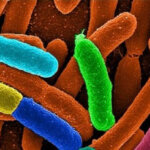Researchers at the University of Chicago released their findings in the Journal of Experimental Medicine unveiling an unusual mechanism in rare mutation linked to familial Alzheimer’s disease.
Funded by Cure Alzheimer’s Fund and JPB Foundation, the study detailed how the mutation S198P, located nowhere near the location of other mutations, may contribute to Alzheimer’s pathology.
According to the journal report: “Familial Alzheimer’s disease (FAD)–linked mutations in the APP gene occur either within the Aβ-coding region or immediately proximal and are located in exons 16 and 17, which encode Aβ peptides. We have identified an extremely rare, partially penetrant, single nucleotide variant (SNV), rs145081708, in APP that corresponds to a Ser198Pro substitution in exon 5.”
“We now report that in stably transfected cells, expression of APP harboring the S198P mutation (APPS198P) leads to elevated production of Aβ peptides by an unconventional mechanism in which the folding and exit of APPS198P from the endoplasmic reticulum is accelerated.”
“More importantly, coexpression of APP S198P and the FAD-linked PS1ΔE9 variant in the brains of male and female transgenic mice leads to elevated steady-state Aβ peptide levels and acceleration of Aβ deposition compared with age- and gender-matched mice expressing APP and PS1ΔE9,” the journal report also states.
“This is the first AD-linked mutation in APP present outside of exons 16 and 17 that enhances Aβ production and deposition,” researchers concluded in the report.


